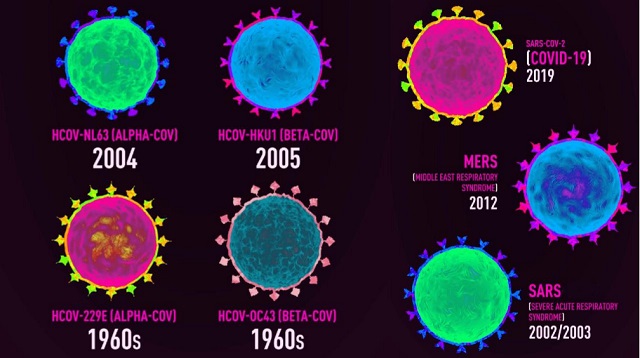
Pfizer and BioNTech to test a candidate
| THE INDEPENDENT | Pfizer and BioNTech announced a new clinical trial for universal COVID-19 vaccine candidates.They say the candidates will include T-cell enhancing shots and pan-coronavirus shots that “protect against the broader family of viruses and its mutations.”
A key challenge for the vaccine is whether or not it will be able to maintain efficacy as the virus mutates.
COVID-19 vaccines wane in efficacy as SARS-CoV-2 mutates over time. While two doses of an mRNA COVID-19 vaccine were 85% effective in preventing hospital admission for infection with the Alpha and Delta variants of SARS-CoV-2, they were only 65% effective in preventing hospitalization following an Omicron infection.
To overcome waning COVID-19 vaccine efficacy, researchers are developing a universal COVID-19 vaccine.
In the first week of July, Pfizer and BioNTech announced they will start clinical trials for a universal COVID-19 vaccine candidate in the second half of 2022.
Universal vaccines
Universal vaccines promise broad efficacy against multiple strains of a given virus. In the case of SARS-CoV-2, they would be effective against its multiple variants and require fewer, if any, updates over time.
“A universal coronavirus vaccine has the potential to better protect against future variants of SARS-CoV-2 as well as other coronaviruses that have the potential to spill over into the human population,” Dr. Jarrod Mousa, assistant professor at the Center for Vaccines and Immunology at the University of Georgia told Medical News Today (MNT).
However, just how “universal” such a vaccine would be is debatable.
When asked how a universal COVID-19 vaccine might be better than current options, Dr. Dana Hawkinson, infectious diseases and medical director of the Infection Control and Prevention (IPAC) program at The University of Kansas Health System, told MNT: “It is hard to say how it would be ‘better.’ It all depends on how you quantify success. We know the current mRNA vaccines available against SARS-CoV-2 are quite efficacious at preventing hospitalisation and death, and the whole spectrum of diseases caused by SARS-CoV-2, i.e. COVID-19. (This means that) the bar for efficacy against hospitalisation and severe disease is quite high.”
“Things we can look for in deciding the success of new or newer generation vaccines will be things like lasting — or durable — protection from infection, reductions in hospitalisation and severe disease many months after vaccination, and inducement of immune response to new or unknown variants in the future,” he explained.
“In addition, as it would be a universal coronavirus vaccine, it should help protect us from further spillover events of animal coronaviruses as we have seen with SARS, MERS, and SARS-CoV-2,” he noted.
Technologies
According to the press announcement, Pfizer and BioNTech’s vaccine candidates will include T-cell enhancing shots that protect against severe disease and pan-coronavirus shots that “protect against the broader family of viruses and its mutations.”
When asked about what technologies researchers might use to create such pan-coronavirus shots, Dr. Hawkinson said that it is hard to say. He noted, however, that genome sequencing, RNA and DNA technology, and possibly other molecular techniques may be used.
Dr. Mousa surmised that “Current mRNA or protein-based technologies could be used in these universal coronavirus vaccines, although the design of new sequences that could cover multiple coronaviruses or SARS-CoV-2 variants may be important for these studies.”
Main challenges
Creating a universal vaccine for COVID-19 is not without challenges. Dr. Mousa told MNT: “The major challenge is similar to what we have seen with SARS-CoV-2 and other viruses: viruses, especially viruses with RNA genomes, tend to mutate very easily to evade immunity. If you put pressure on a virus through exposure to antibodies, for example, viruses that can evade those antibodies will preferentially grow and become dominant.”
“Viruses, especially viruses that are new to humans, such as SARS-CoV-2, may mutate to better adapt to humans during circulation. Protecting against all of these potential outcomes, as well as viruses that could spill over into humans but have not yet, is challenging although important for pandemic preparedness,” he explained.
Dr. Hawkinson agreed that COVID-19’s “virtually unlimited abilities” to mutate and take advantage of weaknesses in the human immune system present a large challenge.
He added: “Other changes may (also) occur in the viral genome which enable it to cause more infections or more severe disease. Therefore, it is important to be able to create a vaccine or therapeutic that can continue to provide protection or treat any new versions of the virus that may arise.”
****
Source: Medical News Today
 The Independent Uganda: You get the Truth we Pay the Price
The Independent Uganda: You get the Truth we Pay the Price



